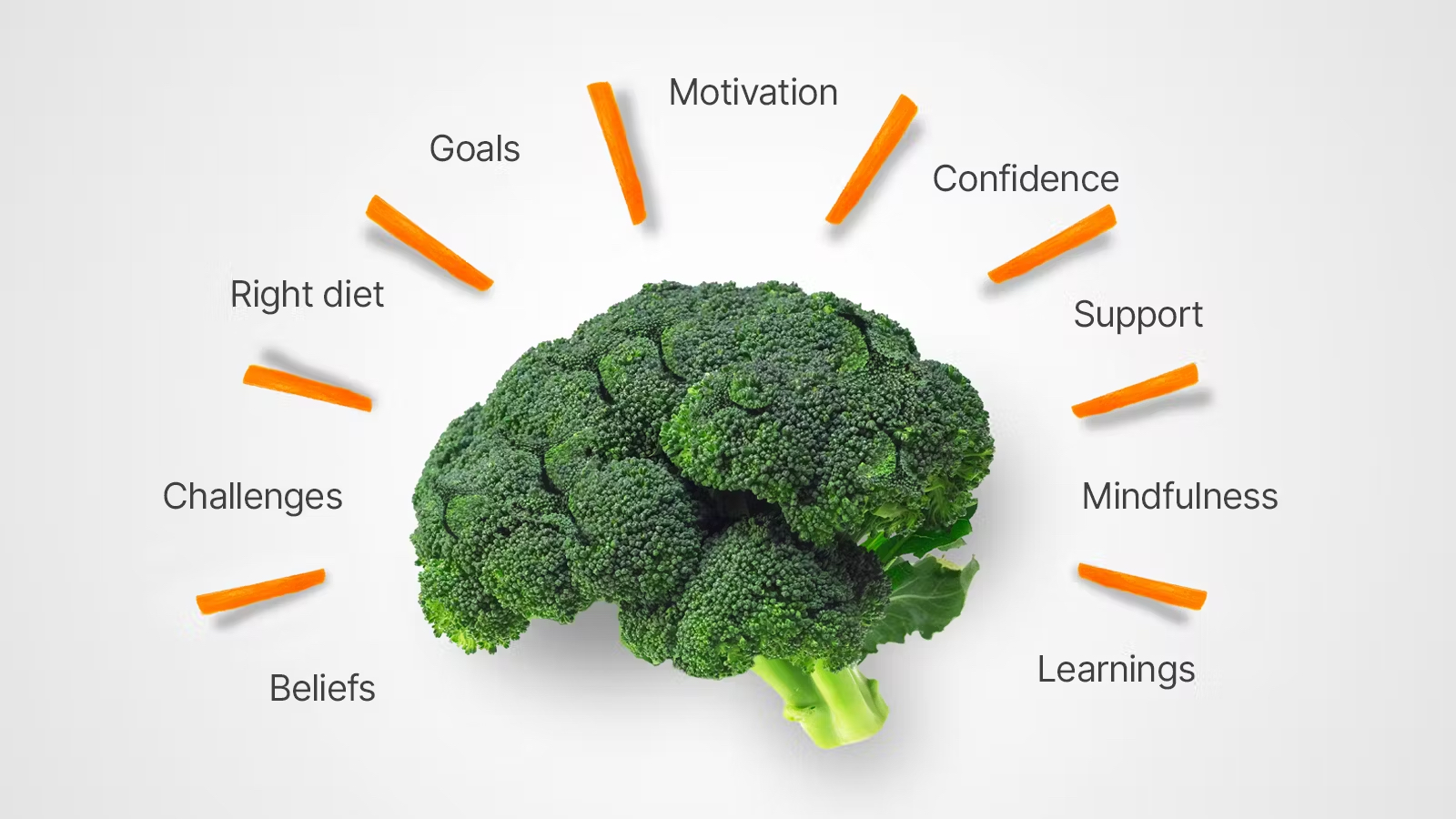The Power of Mindset: A Holistic Approach to Lasting Weight Loss
Your average diet program involves a focus on temporary changes to eating habits and adherence to strict diet rules. While these methods can yield initial success, they frequently fall short of providing a lasting solution. The missing link in the quest for permanent weight loss lies in the realm of mindset and psychological changes. Understanding the intricate relationship between our emotions, coping mechanisms, and habits is crucial for achieving sustainable results.
The Coping Mechanism Conundrum:
Many individuals turn to food and alcohol as coping mechanisms to deal with the stresses of life. The momentary relief provided by these substances is often attributed to the release of dopamine in the brain’s reward center. However, these coping mechanisms, while offering temporary solace, fail to address the root causes of emotional distress. Consequently, without understanding and addressing the underlying issues, individuals are destined to revert to these familiar coping methods in the face of future challenges.
Mindset Matters:
To achieve lasting change, a shift in mindset is essential. Rather than solely focusing on external factors like calorie counts and meal plans, individuals must delve into the reasons behind their reliance on food and alcohol. This introspection involves exploring the emotional triggers that lead to unhealthy coping mechanisms. Understanding the relationship between stress, fear, sadness, and these habits is the first step toward building a healthier mindset.
Developing New Coping Strategies:
Breaking free from the cycle of relying on food and alcohol for emotional relief requires the development of new and healthier coping strategies. Identifying alternative ways to manage stress, fears, and sadness is paramount. This could involve engaging in physical activities, practicing mindfulness, seeking support from friends or professionals, or exploring creative outlets. By cultivating a repertoire of effective coping mechanisms, individuals can gradually replace old habits with healthier, more sustainable practices.
The Role of Habits:
Habits are deeply ingrained and cannot be changed overnight. To initiate meaningful change, one must start at the beginning by understanding the factors that have shaped thoughts, beliefs, and actions leading to specific habits and lifestyle choices. Unpacking the origins of unhealthy habits provides the necessary insight to challenge and transform them.
In the pursuit of lasting weight loss, a holistic approach that addresses the psychological and emotional aspects is indispensable. Temporary changes in eating habits and adherence to diet rules may yield short-term success, but without a corresponding shift in mindset, individuals are prone to relapse. Recognizing the role of food and alcohol as coping mechanisms and understanding the emotional triggers behind them empowers individuals to develop new and healthier strategies for dealing with life struggles. By taking a closer look at the roots of habits and lifestyle choices, individuals can pave the way for genuine, lasting change in their journey toward a healthier and more fulfilling life.


